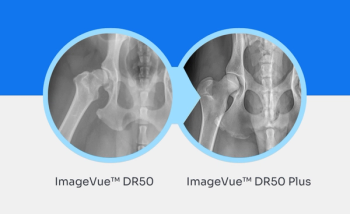
Helicopter Parenting and Guide Dog Training Success
Researchers studied whether overly attentive parenting would help or hinder a dog’s chances of becoming a guide dog.
“Helicopter parenting,” a term first coined by researcher Dr. Haim Ginott in 1969, describes overprotective and overly involved parenting. Results of a study recently published in
Previous studies have explored the effects of early life stress. For example, one study reported higher glucocorticoid levels in male baboons born to subordinate mothers than in those born to more dominant mothers. In another study, children who experienced early life stress exhibited decreased self-control during adolescence.
However, it remains largely unknown how early life experiences affect adult behavior. In addition, there is little consensus on how cognitive abilities and temperament determine future performance outcomes.
RELATED:
- What Do Guide Dog Owners Think of Their Guide Dogs?
- Trained Therapy Animals Boost the Moods of Cancer Patients
Guide dogs are well-suited animal models for addressing these research problems. Guide dogs must meet strict cognitive and temperament requirements to complete training successfully; examples of these requirements include high obedience levels and low hyper-reactivity levels.
Training success, the study’s authors noted, is only about 70%.
To date, no studies have evaluated how maternal care affects guide dog training outcome. The current study examined this topic to identify what predicts successful guide dog training.
Study Design
Study participants included 21 mothers (German shepherds, Laboratory retrievers, golden retrievers) and their litters from The Seeing Eye, Inc., a seeing eye dog organization. During the first 3 weeks of life, the puppies (n = 98) lived in kiddie pools and were video-recorded with their mothers.
After weaning, the puppies went to families that socialized them and taught them basic obedience skills. As young adults (13—17 months), they were returned to the training facility and tested on 11 cognitive and temperament tasks, including multistep problem solving and novel objects. By 2.5 years of age, the dogs either became guide dogs, became breeders, or were released from the program.
Researchers performed statistical analyses to identify associations between maternal care, testing performance, and outcome.
Results
Maternal Style
Researchers determined maternal care levels by observing such behaviors as licking/grooming and nursing style (ventral or vertical). High levels of maternal care were characterized by regular licking/grooming and extra vigilance.
More maternal care was associated with decreased test performance, indicated by slower multistep problem-solving times and greater anxiety with novel objects.
More maternal care also decreased training success. In particular, ventral nursing (lying on side) was associated with training failure, potentially because it requires less effort than vertical nursing (standing up). Researchers surmised that “a moderate amount of maternal care is beneficial, but higher levels…are not challenging enough,” thus negatively affecting future performance.
Tasks
Several tasks were associated with training outcome:
- Latency to vocalize to a novel object: Long latency increased success (see video)
- Multistep problem solving: Poor problem-solving skills decreased success (see video)
- Reactivity to umbrella opening: Stronger reactivity increased success for golden retrievers but not Labrador retrievers
Interestingly, younger dogs had less training success, possibly because they were less capable of acclimating to a kennel setting.
Predictive Power
Researchers compared the predictive power of three models: (1) maternal style, (2) young adult, and (3) maternal style + young adult. Although all models had notable predictive power, the young adult models best predicted training outcome. Nonetheless, “data from both the maternal environment and young adult time period can be useful in predicting program outcome,” the researchers wrote.
Bringing It Together
Study findings suggest that maternal style and individual temperament predict guide dog training success, the researchers believed. However, because the study’s mothers and puppies were related, genetics could have been a confounding factor. Cross-fostering studies, in which nonrelated mothers raise the puppies, could help isolate a genetic influence on training outcome.
Dr. JoAnna Pendergrass received her Doctor of Veterinary Medicine degree from the Virginia-Maryland College of Veterinary Medicine. Following veterinary school, she completed a postdoctoral fellowship at Emory University’s Yerkes National Primate Research Center. Dr. Pendergrass is the founder and owner of
Newsletter
From exam room tips to practice management insights, get trusted veterinary news delivered straight to your inbox—subscribe to dvm360.





